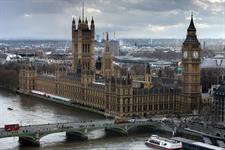New election legislation could deter more charities and issue-based campaigners from engaging in advocacy work in the run-up to an election, organisations have been warned.
Provisions in the Election Bill, which began its passage through the House of Commons earlier this month, include a requirement for more organisations to register with the Electoral Commission when engaging in issue-based campaigning.
The bill introduces a requirement for registration as “lower-tier” non-party campaigners, where they incur more than £10,000 of regulated spending in the period before a general election anywhere across the UK – the figure currently stands at £20,000 in England.
It will restrict overseas organisations’ involvement in elections by prohibiting non-UK-based campaigners from incurring regulated spending of more than £700, which could cause difficulty for some campaigning organisations that do not have an incorporated UK base.
There will also be new transparency rules for digital campaigning materials that will require paid-for digital material to contain certain transparency information, where it could reasonably be regarded as intended to influence the public to support or oppose parties, candidates, political office-holders or the holding of a referendum.
Simon Steeden, a partner in the charity and social enterprise department at the law firm Bates Wells, said: “We are concerned that these changes are likely to exacerbate the ‘chilling effect’ we have seen with charity and non-profit campaigning following changes made by the lobbying act in 2014.
“Lord Hodgson reviewed the impact of those changes after the 2015 general election, and recommended a suite of changes to ensure that greater transparency around the influence of money in election campaigns does not create a disproportionate regulatory burden for campaigners.”
Steeden said that rather than using this bill as an opportunity to implement Hodgson’s package of reforms, the government was increasing the burden on campaigners.
“Although the new lower-tier registration does not carry many of the more onerous compliance requirements that come with full registration, campaigners will be required to comply with additional transparency requirements in relation to online campaigning material and regulated donations,” he said.
“Perhaps most importantly, charities may become more reticent to campaign in the run-up to elections, due to concerns that public registration with the Electoral Commission will create an incorrect perception of party political bias.”
Steeden called for the government to rethink its proposals during the summer recess.
